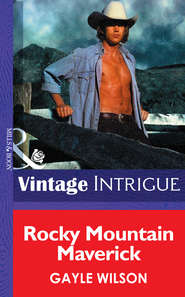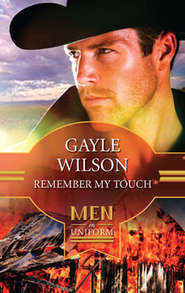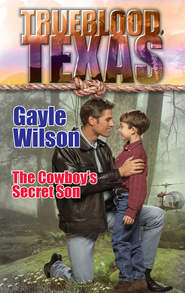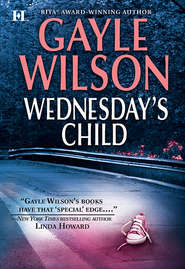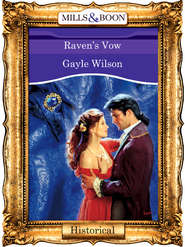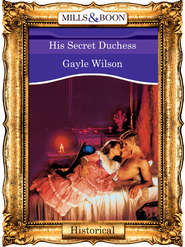По всем вопросам обращайтесь на: info@litportal.ru
(©) 2003-2024.
✖
My Lady's Dare
Настройки чтения
Размер шрифта
Высота строк
Поля
“The lady should be present,” Dare said.
There was a long hesitation. “Superstition, my lord. I believe I explained my reluctance to you.”
“If her proximity to you bothers you, she may stand behind my chair.”
After another long delay, the gambler said, “I believe Mrs. Carstairs has already retired.”
“Send for her.”
“I’m afraid…that is, I believe she is…indisposed.”
“Send for her, please,” Dare said again, his voice very low. A command rather than a request.
Bonnet held the earl’s eyes a moment, his mouth tightening with unexpressed anger, and then he raised his hand and gestured to the servant who had refilled the wineglasses. When the man approached his chair, the Frenchman drew him close and whispered in his ear. The man nodded and walked across the room, disappearing through the same doorway out of which Bonnet had dragged Elizabeth Carstairs only moments before.
For the next ten minutes there was almost no sound in the salon. Occasionally, one of the gentlemen pulled deeply on his cigar and audibly expelled the smoke. Finally, the door through which the servant had departed opened again. He entered and then stepped aside, holding it for the woman.
Elizabeth Carstairs hesitated in the doorway, her eyes first seeking Bonnet’s and then touching briefly on the Earl of Dare’s face before they came back to her master’s. She was dressed in the same dress, but the rubies that had been entwined in her hair were gone. Apparently the curls they had held had been hastily repinned when she was summoned. A few unsecured tendrils floated around her temples and along her throat.
“Monsieur Bonnet feels, perhaps with some justification, that you have brought him ill fortune,” the Earl of Dare said, speaking directly to her. “However, considering my own run of good luck, I have asked that you be allowed to rejoin us. If you would be so kind,” he added politely.
She didn’t move, her eyes again tracking from his face to the gambler’s. Dare rose, walking across the room toward her. When he was near enough, he could see that he had been right in his suspicions. The imprint on her cheek, made by the Frenchman’s palm, was quite clear.
The blow had reddened the delicate skin, leaving the distinct impression of each separate finger. There was a small spot of blood at the corner of her mouth, where it had cut against her teeth.
When Dare met her eyes again, he could see within them doubt and perhaps even a trace of fear. She was uncertain of his motives. He couldn’t blame her for being wary. After all, he had not protested when Bonnet dragged her from this room. None of the English gentlemen had. And so, Elizabeth Carstairs had no reason to believe that he intended to befriend her.
Dare himself could not explain why he had embarked on this crusade. It was out of keeping with the persona he had adopted years ago, and that made it dangerous, of course. As well as ridiculously quixotic, he acknowledged.
Without further comment, Dare held out his arm, wrist upward. He did not offer to take her hand. His gesture was far more formal, the same one he might have used to offer his escort to any lady of his acquaintance onto the dance floor perhaps or to be introduced to his friend, the Prince Regent.
As he watched Elizabeth Carstairs’ slightly widened eyes come up to his, he knew that he had not been mistaken in his assessment of her. After a second or two, she placed her hand in the proper position on top of his wrist.
Despite her outward composure, he could feel her fingers tremble. They were cool against the heat of his own skin, and his body reacted to the feel of them there, the sudden rush of blood to his groin strong and hot.
And potentially embarrassing. Like a bloody schoolboy, Dare thought in amazement, exerting a control he had not been called upon to use in years. He allowed the images of his friend’s face to reform in his mind, images he had fought all evening. Even Elizabeth Carstairs’ undeniable attractions were not proof against that horror.
When they reached the table, the illogical aversion he had taken to Bonnet was stronger than it had been before. He almost regretted not having required the house be a part of this wager. But of course, this whole thing was now about something more than his dislike for the gambler. It was now about this woman, and that, Dare admitted, was even more illogical than the other.
Chapter Two
When they reached the table, Elizabeth removed her hand from the Earl of Dare’s arm and took her place behind his chair. The apprehension that had begun when Bonnet sent for her again was unabated. She wasn’t sure why she was here. Although she had questioned the servant, he could tell her little beyond the fact that Monsieur Bonnet required that she come back downstairs.
Since she had been made very much aware of the gambler’s displeasure when she left the salon, she had been surprised by his summons to return. She had already removed her dress, but it had been a matter of a few seconds to pull it back on again. She had then gathered her hair atop her head, hurriedly securing the curls with a few hairpins from the top of her dressing table.
Despite the fact that she knew she had done nothing to deserve his anger, she was mortified to be seen with the mark of Bonnet’s hand still livid on her cheek. It wasn’t the first time the gambler had struck her. Once he had even used his fists, but the resulting bruises had been too difficult to hide. She had missed several nights in attendance at the tables, and so, thankfully, he had never done that again.
The blow tonight had been painful, but not disfiguring. Based on experience, she knew the mark would hardly be noticeable tomorrow. At least it wouldn’t have been, she amended, had she been allowed to remain in her bedroom with a cold compress pressed to her cheek. Now, however…
The man seated in the chair beside her reached across the table and cut the deck of cards that lay face down upon it. Unlike her own, his fingers were perfectly steady—long and dark and somehow elegant. Her eyes had followed their movements all evening.
The Earl of Dare. Elizabeth tried to think what she had heard about the man who bore that title, but she could remember almost nothing beyond the family name, which was Sinclair. She wasn’t sure why that had stuck in her memory.
She looked down at the man seated beside her, desperately trying to determine his age. Only the midnight-black hair and a narrow portion of his profile were visible from where she stood. She wished she had studied his face more closely when she had had the chance. Instead, she had determinedly fought the impulse to look at him all evening.
That was something that never happened to her before. Usually she avoided eye contact with the men who came to play at Bonnet’s tables. It was safer that way. Her greatest fear had been that she might encounter a familiar face.
Dare’s had not been, but still, there had been something about it that had drawn her. She tried to re-create his features in her mind’s eye, even while her attention, like everyone else’s, was seemingly locked on the cards.
His nose was almost aquiline, she remembered, the bridge high and finely shaped. As were his lips. And there was a small cleft in the center of his chin. His skin was dark, more in keeping with the raven-blackness of his hair than with the remarkable blue eyes. Of course, she admitted, those were made even more noticeable by the sweep of long, thick lashes that surrounded them.
His high forehead was softened by the fashionable curls that were arranged to fall over it. All in all, it was a memorable face, the austere planes and angles suggesting a purpose and discipline that his manner throughout the evening had not.
There was a touch of gray at his temples, she noticed now, examining his profile. And a minute fan of lines radiated from the corner of the eye she could see. Which meant he was older than Jeremy, she decided in relief. Older by perhaps as much as five years, a difference great enough that Dare had probably not known him. She drew a deep, infinitely grateful breath.
That was not, then, why he had had Bonnet send for her. Not because he recognized her. Maybe it really had been only what he said. Maybe he really did believe she had brought him luck. Something obviously had, considering the size of the wager that lay in the center of the table.
And with that her mind came back to the cards. She found that despite her inattention, she could remember every trick that had been played, every card that had fallen. She had done this so often now that it required almost no conscious thought, allowing her mind to range freely, unencumbered by her present circumstances.
Her father had taught her sums when she was only a child. He had been a mathematician and an amateur astronomer. For him, as for her, mathematics had been an avocation. A joy. And now, even that had been perverted. Again, out of necessity this time, she compelled her mind to concentrate on the cards. Thinking of her father was forbidden. Almost as forbidden as the other.
“More wine, my lord?” Bonnet asked softly.
She glanced at the gambler, and realized he was smiling, his eyes almost gloating. There was a satisfaction in his voice which she had heard there before. He believed he would win. Perhaps he had been right about her presence behind his chair bringing him bad luck. God knew that if she could possibly have arranged ill fortune for the Frenchman, she would have.
“Thank you, no,” the earl said. His eyes had lifted to his opponent’s face, and the corner of his mouth that was visible to her had also lifted. “The clearer one’s head, you know.”
There was nothing in the deep voice that she could read. Certainly not anxiety, despite the fortune that rested on the table, riding on the turn of the cards. Whatever Bonnet believed about his own hand, the man beside her, the man who claimed she had brought him luck, had not yet conceded defeat. And for some reason, she was comforted by his unspoken confidence.
In the end, the margin was very narrow, only a few points separating the totals, but Bonnet had won the first hand.
“I believe your luck may indeed have changed,” Dare said. He was smiling. Of course, the Frenchman’s victory in this hand had not been so great that it could not be overcome on the next.
“I think you’re right, my lord,” Bonnet said.
His eyes found Elizabeth’s face. She schooled her features to indifference, but in truth, she knew she should be glad the Frenchman was winning. Life would be far easier for her if he were in a better mood.
Judging by his attire and by the deference with which Bonnet had treated him, the Earl of Dare could afford to lose. He could bear this loss, and if he did, then she might not have to bear the brunt of the Frenchman’s anger.
As the game unfolded, however, the lead went back and forth, the narrow margin that separated the two opponents making it impossible to predict a final victory for one or the other. It was full day now, and several of the gentlemen had indicated by the impatience of their postures, if by nothing else, that it was past time to leave. Everyone was reluctant, however, to cause any loss of concentration by the players at this critical juncture. And then suddenly, as so often happened with the fickle cards, it was over.
“My hand,” the Earl of Dare said again. “The game as well, I believe. An unfortunate discard brought you down, I’m afraid, Monsieur Bonnet. But then, knowing what to discard and when to do so is often tricky.”
Bonnet’s eyes rose to Elizabeth, and believing he wanted verification of the nobleman’s calculation, she gave it.
“The earl’s hand by thirty points. And the game,” she said.
“It seems the lady has indeed brought you good fortune, my lord,” Bonnet said.






